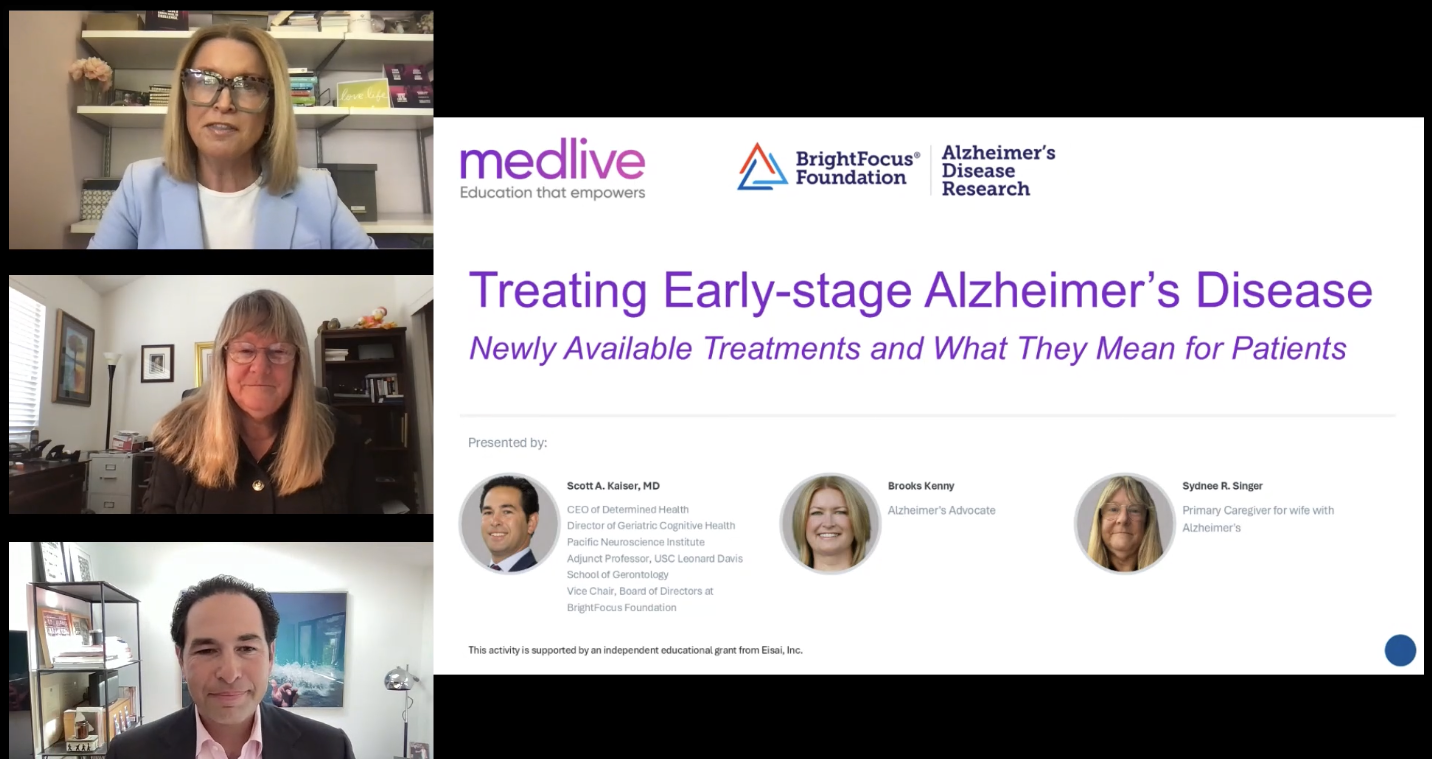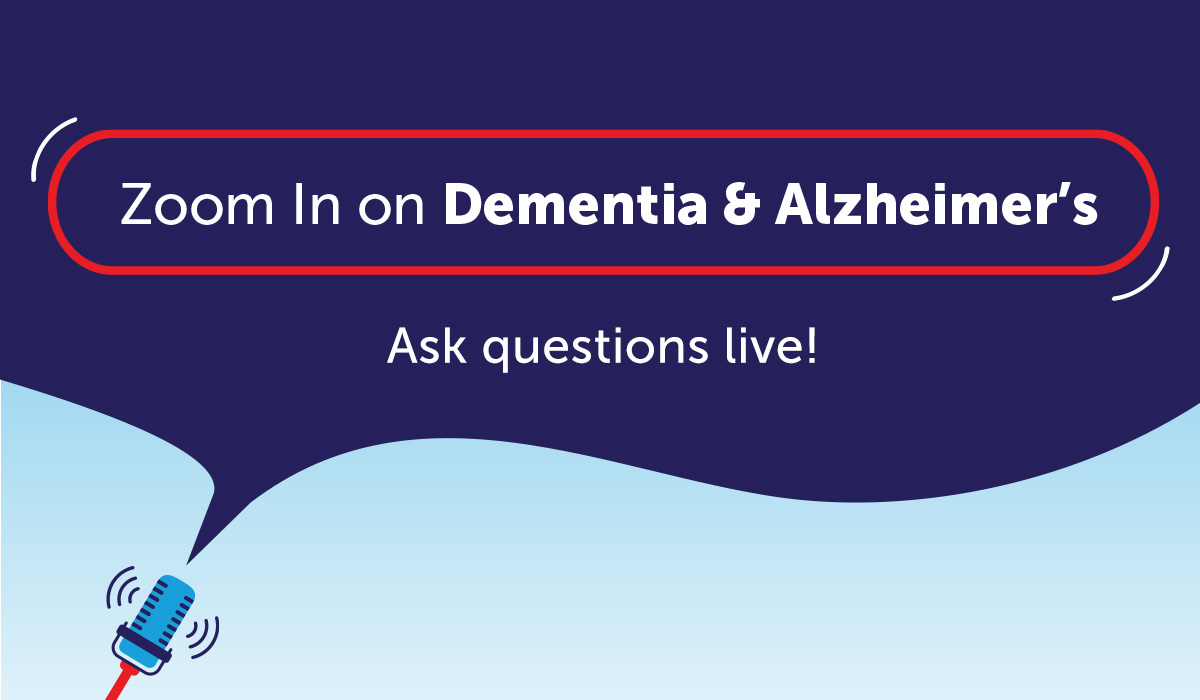
Learn the possible reasons for aggressive behavior and some helpful tips for managing the immediate situation.
Mr. and Mrs. Sanchez* (not their real name), currently living in an assisted living facility, are both in their 80s, and have been married for over 60 years. During the last decade, each has had health issues, but they always work hard to maintain their highest level of independence. They each use a walker for balance and safety; take daily medications for various conditions; and gave up driving without needing too much convincing. They ask very little of their nearby children.
Alzheimer’s is changing that. Mrs. Sanchez’s behavior has changed with her Alzheimer’s. While the children have watched the behavior changes, especially during the last year, Mr. Sanchez, after becoming fully aware of what was happening, only then revealed other unusual behaviors that his spouse exhibited when the children were not around. Behaviors included screaming at him in the hall of the facility where they live and in the emergency room, or shaking her cane at him (prior to when she started using the walker) It was so out of character for her. Mr. Sanchez would just carry on, letting the emotional storm pass.
One day, one of their son’s witnessed Mrs. Sanchez scream and shake her finger at their father—behavior that was triggered when Mr. Sanchez said something that clearly upset her. Her reaction seemed extreme and, for his mother, very uncharacteristic. That was when the “red flags” went up on the son’s part, who wondered what was going on. His worry was not just for his mother, but for his father as well. His mother’s extreme anger was becoming verbally and physically aggressive, threatening his father’s safety and well-being. In a moment like that, when the aggression is heightened, what can someone do to safely manage the person with Alzheimer’s and/or the situation?
When a person with Alzheimer’s disease is verbally or physically aggressive, such as Mrs. Sanchez in the above example, they can lash out verbally or try to hit or hurt someone, including him or herself. As in any behavior, there is a reason, and understanding the cause of the behavior is important for managing unsafe behaviors over the long term.
There Are Many Possible Reasons for the Aggressive Behavior
Every communication from someone with Alzheimer’s gives us an opportunity to understand what is going on. Aggressive behaviors can tell us whether any of the following might be occurring with the individual:
- Pain, stress, or fatigue
- Confusion due to a sudden change in environment (such as the emergency room in the example above); a change in routine; or the change of a person (such as a caregiver)
- Reaction to medications, or to the interaction of medications
- Noisy or confusing surroundings
- Feeling pushed to do something uncomfortable such as taking a bath
- Feeling uncertain when asked to do something that seems too hard
Five Tips to Manage Aggressive Behaviors
While knowing the common causes of aggressive behaviors helps to minimize their occurrence, these behaviors can still happen. How can you safely manage these behaviors at the time they occur?
When you are on the receiving end of an outburst or a physically aggressive behavior, your safety—as well as that of the one with Alzheimer’s, and the safety of anyone else to whom the aggression is being directed—is paramount. Here are some tips for managing the immediate situation:
- When the aggression is being directed at you, keep a safe distance from the one with Alzheimer’s, and remain calm, speaking slowly, softly, and with reassurance;
- When the aggression is directed at someone else who needs your assistance, step in between them, and have the victim step away as you do that. Again, maintain a calm demeanor, speaking slowly, softly, and with reassurance;
- If necessary to protect the one with Alzheimer’s from hurting him or herself, call for help from others. If necessary, call 911;
- Once everyone is at a comfortable and safe distance from each other, continue to speak softly and slowly with the person with Alzheimer’s;
- Re-direct: change the focus to another activity. A calming activity that persons can comfortably participate in is best.
In the Aftermath of These Moments—Self-Care for the Caregiver
These aggressive moments with someone with Alzheimer’s can be stressful for a caregiver. In the aftermath of these moments, remember to find the time for yourself as a caregiver, to retreat, to reflect, and to decompress from the height of the event. Such time will give you the chance to find the calm and self-assurance to continue doing the important work you do for your care recipient.
* The names and details were changed to protect privacy.
About BrightFocus Foundation
BrightFocus Foundation is a premier global nonprofit funder of research to defeat Alzheimer’s, macular degeneration, and glaucoma. Through its flagship research programs — Alzheimer’s Disease Research, Macular Degeneration Research, and National Glaucoma Research— the Foundation has awarded nearly $300 million in groundbreaking research funding over the past 51 years and shares the latest research findings, expert information, and resources to empower the millions impacted by these devastating diseases. Learn more at brightfocus.org.
Disclaimer: The information provided here is a public service of BrightFocus Foundation and is not intended to constitute medical advice. Please consult your physician for personalized medical, dietary, and/or exercise advice. Any medications or supplements should only be taken under medical supervision. BrightFocus Foundation does not endorse any medical products or therapies.
- Lifestyle










